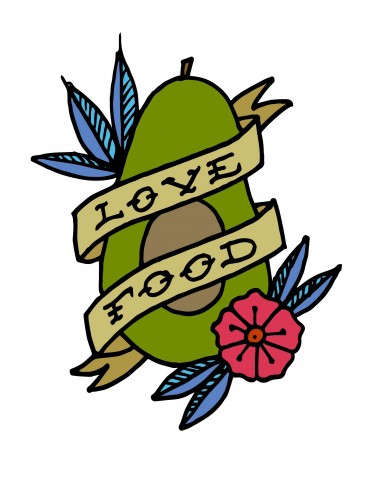Food is an essential part of our everyday lives, and everyone has a different relationship with it. From accessibility to social stigma, there are prevalent barriers that prevent individuals of all backgrounds from establishing healthy eating practices.

But, how do we solve these food issues? We can start by opening a dialogue, furthering our understandings and making conscious efforts to actively support positive change — and it doesn’t need to be difficult.
Food-positive action begins with the self. The act and process of nourishing your body can be truly healing and transformative. I’m not saying you need to stock up on superfruits and whey or strictly adhere to any one diet. Just becoming aware of the things your body needs to make it through a day, and then providing what you can for it, is a good place to start.
When you challenge your own relationship with food, you expand your knowledge. Change can be slow, and you’re bound to have a few bad days, but trust me — mindfulness pays off.
Remember, in everything you do, your actions have an impact on both yourself and others. Yes, even a dinner-for-one, eaten over the kitchen sink between a student council meeting and a night class, has an effect on someone else.
Ask yourself these questions. Where does your food come from? Who is involved in taking it from crop to shop to pantry? Who goes without, while you’re well nourished? If it bothers you to think long and hard about your eating habits, maybe something needs to change.
Food is a unifier. It’s diverse and interesting and necessary. Because we all need it and all have different levels of access to it, it’s important to be aware of your own position in relation to the cycle of consumption, production and waste. What I’m saying is, if you have access to healthy food, you should take only what you need and find ways to ensure that everyone else has the same opportunities as you.
It can be hard to appreciate food for all its worth — and mental health can have a huge impact on eating habits. Disordered eating affects many, and in different ways. Social stigmas around eating and food create more barriers, and it’s important to also consider the weight of your words when discussing the topic.
Instead of saying “I ate so much that I could’ve thrown up,” say “I am full” or the sarcastic “I ate so much that there wasn’t room for my soul in my body.” Rather than commenting on a dish’s gluttonous qualities, celebrate the joy it brings you. Don’t make jokes about things you haven’t experienced, and try to be inclusive.
If you’re struggling to nourish yourself regularly, I stand by these affirmations: your health and well-being is valuable, and you should not take it for granted. Your body needs fuel, and you are allowed to enjoy refilling your tank. You are very fortunate to have the means to feed and nourish yourself.
Food positivity is not a radical endeavour. It’s simply a change in perspective. Make eating with intention a priority, even just for a week, and see what kind of things you learn about your relationship with food. Get out there, taste what you’re meant to taste, and — when your tummy starts to rumble — remember that everyone else’s does, too.
—
Emily Migchels / Opinions Editor
Graphic: Laura Underwood / Layout Manager
Leave a Reply